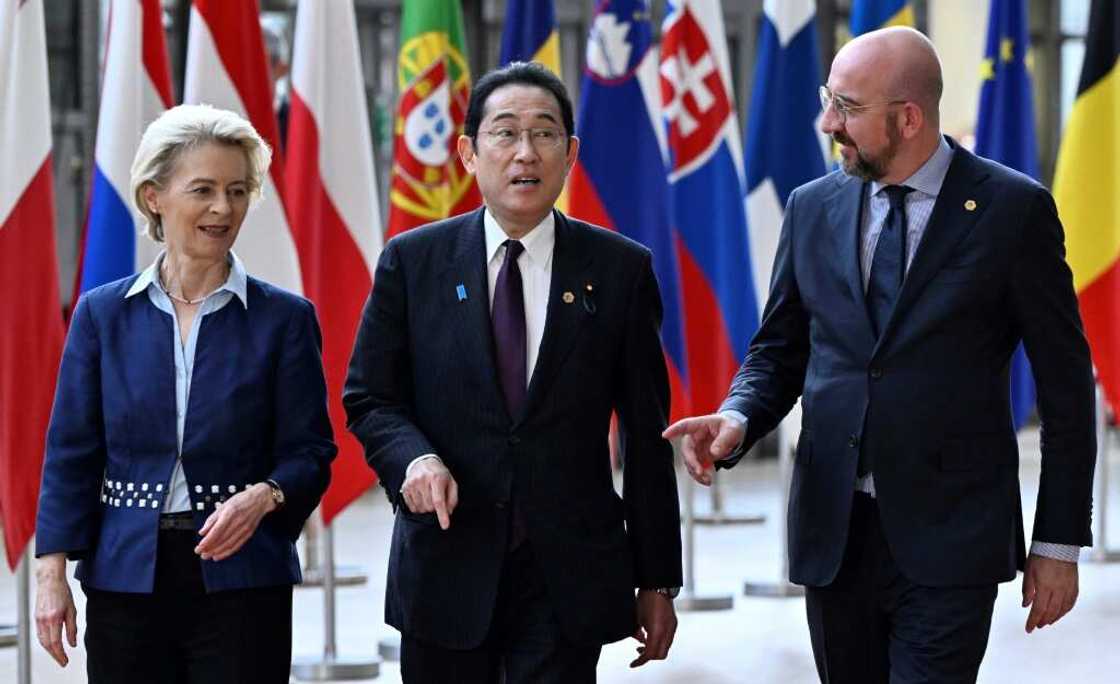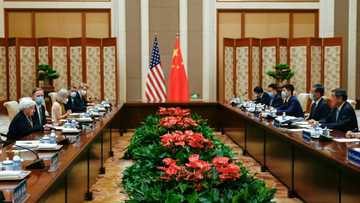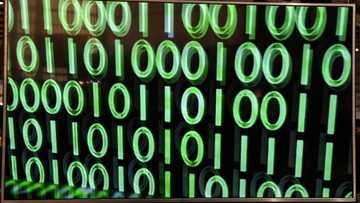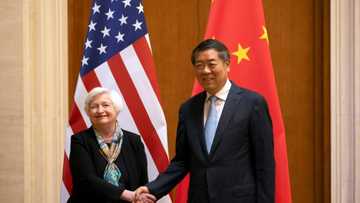EU, Japan talk cooperation on raw materials

Source: AFP
Unlock the best of Legit.ng on Pinterest! Subscribe now and get your daily inspiration!
The EU and Japan are working on a cooperation agreement for raw materials to whittle down China's dominance in the sector, leaders said in Brussels on Thursday.
Coordination also extended to semiconductors, to help boost economic security in Japan and the EU, European Commission chief Ursula von der Leyen, European Council President Charles Michel and Japanese Prime Minister Fumio Kishida said.
The three spoke in a joint media conference after holding a brief, two-hour summit held in the wake of a NATO summit in Lithuania this week that all three leaders had attended.
Their meeting touched on a range of issues, with some -- notably on questions of security -- addressed through the prism of Japan's current role chairing the G7 group of advanced, Western-oriented nations.
North Korea's launch of a solid-fuel intercontinental missile on Wednesday was condemned, with Michel saying it and Pyongyang's nuclear weapons programme "threaten regional and international security".
"We condemn this in the strongest possible terms," he said.
PAY ATTENTION: Follow us on Instagram - get the most important news directly in your favourite app!
Von der Leyen said the EU and Japan were launching a "strategic dialogue" to coordinate on the "unprecedented challenges to peace and security" in the Asia-Pacific, which she said included the issue of economic security.
Russia's war in Ukraine -- also condemned by the leaders -- showed how various supply chains can be disrupted, she said.
When it came to the raw materials fuelling their economies, the EU and Japan "share similar dependencies," she said.
"One of our objectives is to reduce over-reliance on a handful of suppliers, many of them based in China, for products that are vital for our economies," von der Leyen said.
Michel said that "over history, we've seen the abuse of dominant positions and this causes difficulties".
Kishida agreed on the need for cooperation, though did not directly name China as the reason.
"We welcome this direction (with the EU), as like-minded countries and partners will provide supply-chain and critical infrastructure resilience," he said.
"It's important that Japan and the EU and like-minded countries coordinate and respond with one voice to economic security as well as towards de-risking," Kishida said.
Semiconductors, AI
He added that, in supply chains for computer chips, "we are working together on the advanced skills for the semiconductor industry".
The trio also discussed cooperation on artificial intelligence, with von der Leyen saying they wanted to ensure that AI products they developed did not fall into the hands of other countries that could use them for military ends.
Japan's big domestic win at the Brussels summit was the European Union immediately dropping import restrictions on Japanese food imports from the Fukushima region, which was affected by the March 2011 nuclear accident that occurred there.
The commission said that, based on data supplied by Japan, there was no public health threat to European consumers who ate plants, fish and mushrooms from Fukushima, which up to now had been banned.
Brussels, though, urged Japan to continue to monitor fish and seaweed close to the plant for radioactivity.
"We're happy that the EU made the decision to lift import restrictions on Japanese food," Kishida said, adding that "this was based on science".
Michel said that "in parallel" the EU was working on improving access of European beef, fruit and vegetables to the Japanese market.
Source: AFP





